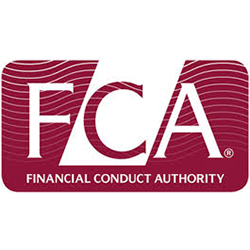Compliance
New UK Blank Cheque Company Rules Kick In

The big change to UK listing rules is removing the old presumption that a SPAC’s listed shares will be suspended when it announces a potential acquisition. This presumption had put investors off, because they feared losing the ability to exit their investment if they disliked the proposed target.
New UK rules to encourage special purpose acquisition companies
listed in London – a market that has boomed in the US and may
already have peaked – take effect today.
SPACs, aka blank cheque companies, float on an exchange and must
use the proceeds to buy an existing or target company within a
set timeframe. In the case of the US market, it is two years.
SPACs provide a faster route to a stock market listing by
removing some of the costs incurred with a conventional initial
public offering.
Under previous UK rules, shares in SPACs were suspended when a
target company was identified.
In April, the UK’s Financial
Conduct Authority called for the rules to be eased, waiving
the suspension rule if a SPAC raised at least £200 million
($275.66 million) from its float. The argument against the old
rules is that investors could be trapped in a SPAC if they
disliked the company being targeted.
“This could mark a new beginning for the UK’s IPO market. Under
the new rules, and in addition to other reforms, SPACs must now
raise a minimum of £100 million at IPO, which is half the
previous £200 million threshold,” Merlin Piscitelli, chief
revenue officer for EMEA at Datasite, said in a comment on the
new rules. (Datasite, formerly known as Merrill Corporation, is a
software-as-a-service provider for the M&A industry.)
Piscitelli is concerned, however, that the new approach is coming
precisely when the US market appears to be cooling off. (See
an article on recent trends.)
“These changes are meant to enhance the attractiveness of the UK
as a listing venue for larger SPACs while attempting to protect
the reputation of the markets and investors. Still, there are
concerns that the reforms are coming at an inopportune time or
potentially too late, with global SPAC activity cooling down
compared to the initial hive of activity at the beginning of the
year. Ultimately, the coming months will demonstrate whether
these new rules will effectively entice a new wave of SPAC
investment activity in the UK and whether SPACs will emerge as
the dominant force in the M&A space. If not, it might be less
of a reflection of the regime’s effectiveness and more to do with
a global SPAC cool off,” he said.
"SPACs raised over $75 billion last year, nearly twice the amount
they did over the past decade combined and, more recently,
accounted for 17 per cent of global deal value in Q1 2021. Yet,
the bulk of activity has largely taken place in the US.
Statistics from S&P Global Market Intelligence now show that
SPAC activity has slowed down significantly in Q2 2021, dropping
81 per cent from the previous quarter. At the same time, M&A
deals are continuing their bullish run with high profile deals
and more significant transactions on the horizon," Piscitelli
added.
"The final rules aim to provide more flexibility to larger SPACs, provided they embed certain features that promote investor protection and the smooth operation of our markets," the FCA said in late July.